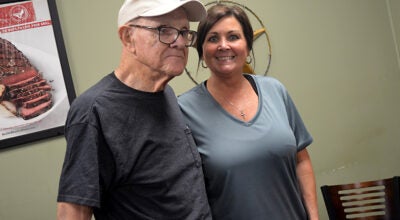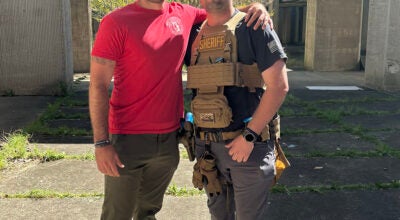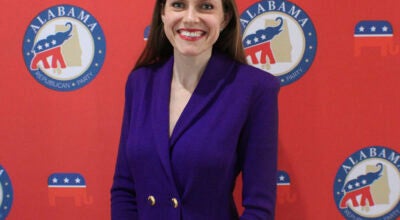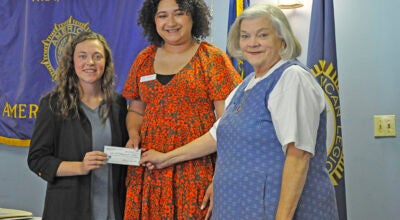Troy Mayor welcomes guests to annual Breakfast
Published 11:00 pm Monday, November 12, 2012
Troy Mayor Jason A. Reeves welcomed the guests to the annual Veterans Day breakfast hosted by the Colley Senior Complex Monday.
He did so with great humility.
“Every heartbeat, every breath we take, we owe to our veterans,” he said. “My daughter celebrated her fifth birthday yesterday and, when I tucked her in last night, she said, ‘Daddy, this was the best day ever.’ And, I thought that, if it were not for our veterans, we would not have ‘best days ever.’ On behalf of the city, our community and our nation, we thank you.”
Veterans from all branches of the military attended the 13th annual Veterans Day breakfast and were treated to good food, special music by Shelia Jackson and her son, Patrick Jackson, and a presentation by Command Sergeant Major Scherr Qualls, who recently returned home from deployment to Afghanistan.
Qualls demonstrated the technology that plays such an important role in today’s military deployments with a Skype presentation.
Mason Thompkins, who is serving with Uncle Sam in Afghanistan, participated in a conversation via microphone, web cam and the Internet with Qualls and much to the amazement and delight of the veterans.
Thompkins said through technology, he is able to talk with family and friends almost every day.
Qualls said that is far different from the way soldiers had to communicate with loved ones back home during World War II, Korea and Vietnam.
During World War II, letters were slow in coming but so welcomed when they finally arrived.
“Now, soldiers can hear from their families and friends almost every day,” Qualls said. “The Internet is a great means of communication. Even in undeveloped areas where there is no electricity or running water, soldiers can still get cell phone service.”
Qualls was stationed at Camp Leatherneck in Western Afghanistan, which is a huge base about the size of Troy.
“The soldiers are quartered in block or metal buildings and have three hot meals a day,’ Qualls said. “But, the soldiers never lose their focus. They do their jobs.”
Qualls said his unit was primarily in charge of hauling supplies to Marines and others in the fields.
“When we had to go north, that was the real danger,” he said. “IEDs were our biggest threat. But we always had eyes on the enemy, including air surveillance.”
Qualls said a large number of the soldiers were women and they drove trucks and were gunners and mechanics and “we couldn’t have done without them.”
The veterans were anxious to know about the people of Afghanistan.
Qualls said the children were not a threat.
“They would throw rocks at our vehicles, but I think that was more for entertainment,” he said. “They did break windows, and it was costly to replace them.”
The women in Afghanistan are being treated much better now but Qualls said he expects that things will get back to the way they were when the American soldiers leave.
“The main cash crop is poppies that are raised for drugs,” he said. “You can’t blame them. They have to have some way to make a living.”
He estimated that 95 percent of the country’s population is illiterate and that it would take 100 years of schooling to educate the population so their minds could really absorb information.
“They only know what they are told,” he said.
Catherine Jordan, Colley Senior Center director, expressed appreciation to all of those, staff members and volunteers, who worked so hard to make the breakfast a success. She especially thanked the veterans who sacrificed so much for their country.
“The breakfast is the least that we can do for you,” she said. “We can never do enough but we thank you so much for your service.”





